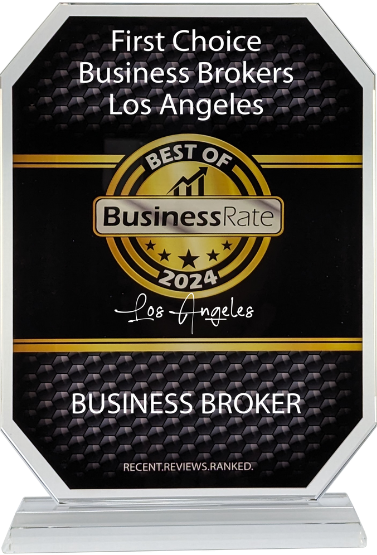Exit Strategy 101: What It Is and How to Create One for Your Business
Understanding What Is An Exit Strategy In Business
Defining a Business Exit Strategy
So, what is a business exit strategy? It's basically your plan for leaving your business, whether that's selling it, passing it on, or closing up shop. You want to plan your exit to maximize your benefits. Think of it as the final chapter of your business journey, and you want to make sure it's a good one.
- An exit strategy is a roadmap for transitioning out of your business.
- It outlines the steps you'll take to achieve your desired outcome.
- It should be developed well in advance of your planned departure.
An exit strategy isn't just for when you're ready to retire. Life happens. Having a plan in place can help you navigate unexpected circumstances, like health issues or a sudden market shift, ensuring you're prepared for anything.
Key Objectives of an Exit Strategy
An exit strategy is about achieving specific goals. What do you want to get out of your business when you leave? Are you looking to maximize profit, ensure a smooth transition for employees, or preserve your company's legacy? These objectives will shape your exit plan
Here are some common objectives:
- Maximize Financial Return: Getting the best possible price for your business.
- Ensure Business Continuity: Making sure the business continues to thrive after you leave.
- Protect Your Legacy: Preserving the values and culture you've built.
Minimizing Risks and Maximizing Profits
A well-crafted exit strategy is your shield against potential pitfalls and your key to unlocking maximum value. It's about identifying potential risks, like market downturns or legal challenges, and developing strategies to mitigate them. It's also about positioning your business to attract the right buyers and negotiate the best possible deal. First Choice Business Brokers Los Angeles can help you navigate this process.
- Identify potential risks and develop mitigation strategies.
- Prepare your business for sale to attract the right buyers.
- Negotiate the best possible deal to maximize profits.
Developing Your Business Exit Strategy
Developing a solid exit strategy means carefully planning how to maximize your return and minimize potential headaches. It's a process that requires a clear understanding of your goals, your business's worth, and the current market landscape. Let's explore some key aspects of developing your exit strategy.
Aligning with Financial and Personal Goals
Your exit strategy should directly reflect your goals, both financially and personally. What do you hope to gain from exiting your business? This involves more than just money; it's about what you want to do next.
Consider these points:
- What's the minimum amount of money you need to retire comfortably or pursue other ventures?
- Are you looking for a clean break, or do you want to stay involved in some capacity?
- What's your timeline? Are you looking to exit in the next year, five years, or longer?
It's important to have a candid conversation with yourself and your family about your goals. This will help you make informed decisions about the type of exit strategy that's right for you.
Assessing Business Valuation
Knowing what your business is worth is a critical step in developing your exit strategy. A professional valuation can provide an objective assessment of your company's assets, liabilities, and future earnings potential. First Choice Business Brokers Los Angeles can help you with this process.
Here are some factors that influence business valuation:
- Financial performance: Revenue, profitability, and cash flow are key indicators.
- Market position: Your competitive advantage and market share matter.
- Intangible assets: Brand recognition, customer relationships, and intellectual property add value.
Considering Market Conditions
The overall economic climate and the specific conditions within your industry can significantly impact your exit strategy. Is it a buyer's or seller's market? Are there any emerging trends or disruptions that could affect your business's value?
Keep these points in mind:
- Research industry trends and forecasts to understand the current market dynamics.
- Monitor interest rates and financing options, as these can affect buyer demand.
- Be aware of any regulatory changes or legal issues that could impact your business or industry.
Common Exit Strategy Approaches
Mergers and Acquisitions (M&A)
Mergers and Acquisitions, often called M&A, represent a common exit path for business owners. This involves selling your company to another entity, either merging with them or being acquired outright. This strategy can be attractive for owners seeking a clean break or those who wish to remain involved in a different capacity.
- Potential for a higher valuation, especially if multiple companies are interested.
- Access to greater resources and market share under the new ownership.
- Opportunity for owners to transition out of the business gradually.
M&A deals can be complex and time-consuming, requiring careful negotiation and due diligence. It's important to have a clear understanding of your company's value and to work with experienced advisors to navigate the process.
Selling to a Partner or Investor
Another avenue is selling your stake to a current partner or bringing in an outside investor. This approach can be simpler than a full-blown M&A deal, especially if you have a trusted partner who is already familiar with the business. Selling to a partner or investor can provide capital for the owner while ensuring the business continues under capable management.
- Maintains continuity for employees and customers.
- It can be a faster and less disruptive process than selling to an external buyer.
- Allows the owner to potentially retain some level of involvement or advisory role.
Family Succession Planning
For many family-owned businesses, passing the torch to the next generation is the preferred exit strategy. This involves carefully planning the transfer of ownership and management responsibilities to family members. Family succession can be a rewarding way to preserve the legacy of the business, but it requires careful planning and communication to ensure a smooth transition.
- Preserves the family legacy and values.
- Provides continuity for employees and customers.
- It can be emotionally rewarding for the owner.
If you're considering these options or want to explore how to sell your business in los angeles, reaching out to professionals like First Choice Business Brokers Los Angeles can provide valuable guidance.
Strategic Considerations for Startups
Startups face a unique set of circumstances when considering their exit strategy. Unlike established businesses, they often have a shorter runway and a greater reliance on investor funding. This means that planning for an exit early on is super important, even if it seems premature. It's all about maximizing potential and ensuring a smooth transition when the time comes.
Initial Public Offering (IPO) Potential
An IPO is often seen as the holy grail for startups, but it's not always the most realistic or best option. It involves offering shares of your company to the public, which can generate significant capital. However, it also comes with a ton of regulatory requirements and scrutiny. Startups need to carefully assess if they have the scale, profitability, and market demand to make an IPO a success.
- Consider the costs associated with going public, including legal and accounting fees.
- Evaluate the market conditions and investor appetite for new offerings.
- Assess your company's readiness for the increased transparency and reporting requirements.
Acquisition by Larger Corporations
Acquisition is a more common exit strategy for startups. Larger corporations often acquire startups to gain access to new technologies, talent, or markets. This can be a faster and less risky way to achieve a successful exit compared to an IPO. However, it's important to find the right acquirer who aligns with your company's vision and values.
Finding the right acquirer involves more than just the highest bid. It's about finding a company that will nurture your team, continue to innovate on your technology, and maintain the culture you've worked so hard to build.
Strategic Buyouts
Strategic buyouts involve selling your company to another entity that can benefit from your assets or market position. This could be a competitor, a private equity firm, or another strategic investor. The key is to identify potential buyers who see value in what you've built and are willing to pay a fair price. First Choice Business Brokers Los Angeles can help you with business valuation services in los angeles to determine the fair price.
- Identify potential buyers early on and build relationships with them.
- Prepare a comprehensive due diligence package to showcase your company's value.
- Negotiate the terms of the buyout carefully to ensure a favorable outcome.
Exit Strategies for Established Businesses
Established businesses have different considerations when planning an exit compared to startups. They often have a longer track record, more complex operations, and potentially a larger employee base. This means their exit strategies need to be carefully tailored to their specific circumstances. It's a good idea to consult with professionals like First Choice Business Brokers Los Angeles to explore all options.
Internal Succession Planning
Internal succession planning involves passing the business on to a family member or a long-term employee. This can be a good option if you want to keep the business in trusted hands and maintain its legacy.
- Careful planning is needed to ensure a smooth transition.
- The successor needs to be properly trained and prepared to take over.
- A fair valuation of the business is still important, even if it's staying within the family.
Internal succession can be emotionally complex, especially when family is involved. Clear communication and a well-defined plan are key to avoiding conflicts and ensuring the business continues to thrive.
Management Buyouts (MBOs)
A management buyout (MBO) occurs when the existing management team purchases the business from the owner. This can be an attractive option because the managers already know the business well.
- The management team needs to secure financing to purchase the business.
- A fair valuation of the business is crucial for both the owner and the management team.
- Legal and financial advisors should be involved to ensure a smooth transaction.
Leveraged Buyouts (LBOs)
A leveraged buyout (LBO) is similar to an MBO, but it involves using a significant amount of borrowed money to finance the purchase. This debt is then repaid using the future cash flow of the acquired company.
- LBOs are typically used by private equity firms.
- The acquired company needs to have a stable cash flow to support the debt payments.
- LBOs can be a higher-risk exit strategy due to the large amount of debt involved.
Navigating Challenges in Exit Planning
Planning your exit can feel like charting unknown waters. It's not always smooth sailing, and there are definitely some common hurdles you'll want to prepare for. Recognizing these challenges early can help you develop strategies to overcome them, making the whole process less stressful and more successful.
Addressing Time and Cost Commitments
Exit planning isn't a quick task; it requires a significant investment of both time and money. You'll need to dedicate hours to assessing your business, preparing documentation, and working with advisors. Legal and accounting fees can also add up.
- Start early: The sooner you begin, the more time you have to spread out the workload and associated costs.
- Budget accordingly: Factor in all potential expenses, including professional fees, marketing costs (if selling), and potential tax implications.
- Prioritize tasks: To maximize the use of your time and resources, focus on the most important aspects of the plan first.
Ensuring Regulatory Compliance
Depending on your industry and the type of exit strategy you choose, you'll need to comply with various regulations. This could involve anything from securities laws for an IPO to environmental regulations for certain types of businesses.
- Identify applicable regulations: Research the specific rules and laws that apply to your business and chosen exit strategy.
- Seek expert advice: Consult with legal and financial professionals who have experience in exit planning and regulatory compliance.
- Maintain accurate records: Keep detailed and organized records of all business transactions and compliance efforts.
Managing Due Diligence Processes
Due diligence is a thorough investigation of your business conducted by potential buyers or investors. It can be a time-consuming and intrusive process, but it's a critical step in validating the value of your company.
Preparing for due diligence ahead of time can significantly streamline the process. Gather all relevant financial statements, contracts, and legal documents. Be transparent and responsive to requests for information. A well-organized and readily available set of documents can build trust and speed up the deal.
- Prepare your documents: Organize all financial records, contracts, intellectual property documentation, and other relevant information.
- Be transparent: Disclose any potential issues or liabilities upfront.
- Respond promptly: Address all requests for information quickly and accurately.
For expert guidance in navigating these challenges, consider reaching out to professionals like First Choice Business Brokers Los Angeles. They can provide support and advice to help you achieve a successful business exit.
Preserving Business Value During Transition
Exiting your business doesn't just mean signing papers and walking away. You want the value you've built over the years to remain intact, even after you're gone. This requires careful planning and execution to avoid any disruptions that could negatively impact the business's future success. Maintaining business value during this period is key to a successful exit.
Maintaining Operational Efficiency
Keeping things running smoothly is important during the transition. Any dip in performance can scare off potential buyers or lower the final sale price. Here's how to keep things humming:
- Keep the team focused: Make sure everyone knows their roles and responsibilities. Clear communication is key.
- Don't cut corners: Resist the urge to reduce spending in ways that could hurt quality or service.
- Stay innovative: Keep looking for ways to improve processes and products. Stagnation can signal decline.
Protecting Intellectual Property
Your intellectual property (IP) is often one of your most valuable assets. It's important to protect it during the exit process. This includes:
- Reviewing and updating: Make sure all patents, trademarks, and copyrights are up to date.
- Securing trade secrets: Limit access to sensitive information and enforce confidentiality agreements.
- Transferring ownership: Have a clear plan for transferring IP rights to the new owner.
Cultivating Strong Customer Relationships
Customers are the lifeblood of any business. Keeping them happy and loyal during a transition is crucial. Here's how:
- Communicate openly: Let customers know about the transition and reassure them that service will continue uninterrupted.
- Maintain quality: Don't let service levels slip. Consistency is key to maintaining trust.
- Seek feedback: Ask customers for their input and address any concerns promptly.
A smooth transition is about the people – your employees, your customers, and your community. By focusing on these relationships, you can ensure a successful exit that benefits everyone involved. If you're in the Los Angeles area, consider reaching out to First Choice Business Brokers Los Angeles for guidance on maximizing your business's value during this critical time.
Wrapping Things Up
So, there you have it. An exit strategy is a real plan for when you decide to step away from your company. It helps you get ready, whether you're looking to sell, pass it on, or just close things down. Preparing early on can make a big difference. It means you're not caught off guard, and you can make sure all your hard work pays off the way you want it to. It's about being smart and prepared for the future of your business, and your own future too.
Disclaimer: This article provides general information only and is not professional advice. Business exit strategies, legal, and financial matters are complex and require personalized guidance. Always consult with qualified professionals like business brokers, attorneys, accountants, and financial advisors for your specific situation. The authors and publishers are not liable for any actions taken based on this information.







